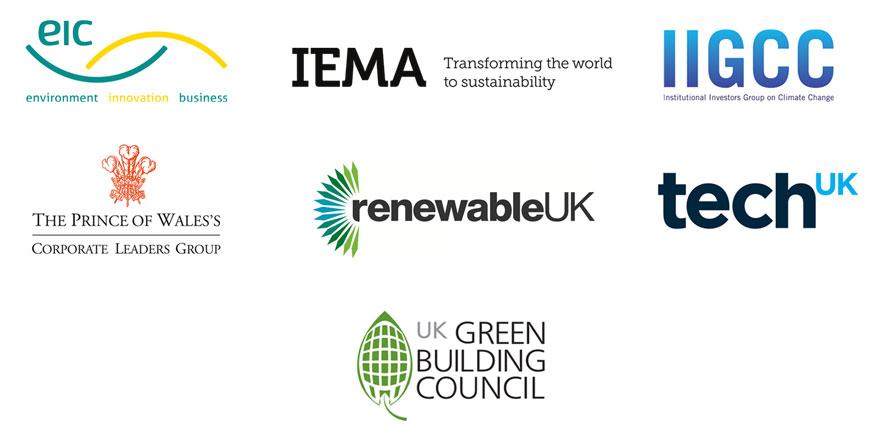
A letter from leading companies and investors, sent to the Prime Minister yesterday, urges the UK government to raise ambition to tackle climate change and show leadership towards a stronger, more prosperous and sustainable economy.
The letter is signed by groups that collectively represent 1000s of companies with 100s of billions in revenue, along with 100s of investors managing assets worth over £19 trillion. The signatories are: The Prince of Wales’s Corporate Leaders Group, IEMA, UK Green Building Council, techUK, Institutional Investors Group on Climate Change, RenewableUK, and the Environmental Industries Commission.
The letter, which references recent findings from the Committee on Climate Change, calls on the government to demonstrate leadership on climate change in order to drive jobs, sustainable growth, and investment, and remain competitive with other major economies.
This means setting clear policies through flagship proposals like the Industrial Strategy and the Clean Growth Plan to meet its commitment under the Paris Climate Agreement, working constructively with the EU to deliver global emission reductions and taking international leadership as it negotiates new low carbon trade deals around the world.
Jill Duggan, Director, The Prince of Wales’s Corporate Leaders Group said: “The government may have a lot on their plate with Brexit negotiations, but answers around how the UK’s economy will evolve and modernise through the next decade are long overdue. Now is the time to display the vision, innovation and leadership needed to help UK industry transition to a low carbon economy.”
Tim Balcon, IEMA CEO, said: “Enhancing environmental and sustainability skills is an essential investment to secure the full social and economic benefits from transitioning to low carbon and climate resilient economies. IEMA is fully committed to developing skills, collaborating across key sectors, and supporting the delivery and ambition of the Paris Agreement.”
Julie Hirigoyen, Chief Executive, UK Green Building Council said: "The built environment is crucial to achieving our climate targets, yet the Committee on Climate Change recently demonstrated that without stronger policies, we will remain off-track. The good news is that carbon reductions in our homes, buildings and infrastructure can offer multiple social benefits - health, jobs and consumer bills. Smart regulation and policy can unlock these benefits and provide tremendous commercial opportunities at just the right time for UK Plc."
Julian David, techUK’s CEO, comments: “How we choose to act against climate change will shape the future for all. Creating a world-leading sustainable economy, based on innovative technology, will not only benefit society but drive productivity and support growth across the UK. The tech community stands ready to support this Government as it looks to lead the charge in realising this vision.”
Hugh McNeal, CEO, RenewableUK said: “Low carbon growth is delivering for Britain today, and a commitment to strengthening it should be at the heart of the Government’s Industrial Strategy work.”
Stephanie Pfeifer, CEO of the Institutional Investors Group on Climate Change said: “It’s vital the UK Government embeds within its industrial strategy and the clean growth plan a detailed and ambitious policy framework for climate action to 2030 focused on three critical sectors – power generation, buildings/heating and road transport. Clarity and ambition to 2050 – at home and in partnership with other key nations - is also essential if the UK wants to persuade pension funds and other major asset managers to mobilise the hundreds of billions in long-term capital required to ensure the UK can meet the targets set out under the Paris Agreement.”
Matthew Farrow, Executive Director of EIC said: “The low carbon and environmental protection sectors contain world class clusters of firms, innovation, huge export potential and create jobs across the UK. They also help deliver the Governments objectives around housing and infrastructure, and should be a key part of the Industrial Strategy.”




